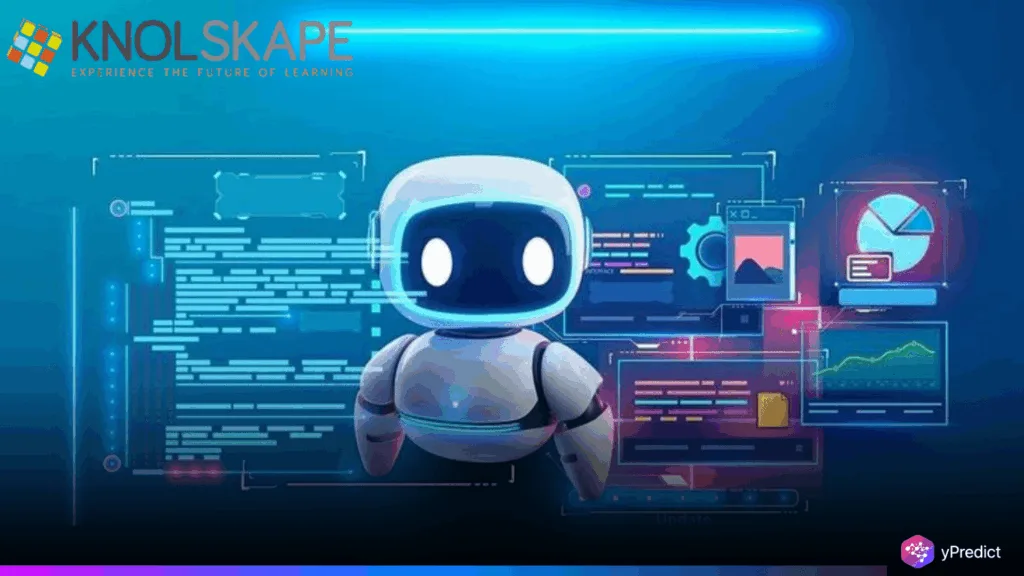
Knolskape, a global experiential learning technology company, has introduced a dedicated learning platform called AI Academy. The platform features role-specific programs driven by immersive simulations and is intended to increase AI fluency in India’s tech ecosystem. The CPO and co-founder of Knolskape, Kalyan Teja Maganti, disclosed that 82% of companies believe AI will revolutionize. However, only 6% of workers are comfortable utilizing it. The Academy seeks to bridge this confidence gap and prepare employees for the practical implementation of AI. It already affects companies like TCS.
Building AI Fluency Through Role-Specific Learning Paths
Knolskape’s AI Academy targets employees across all levels, offering three structured programs like AI Ignite, AI Catalyst, and AI Architect. Each is designed to fit particular roles, guaranteeing a personalized learning environment that satisfies various skill requirements. Through the 4E methodology, learners are also guided by assessments, real-world simulations, and expert coaching. The four E’s are Enable, Experience, Educate, and Evaluate.
These simulations are more than just online classes. They simulate workplace challenges to help users apply tools, improve communication, and understand the value of AI. Furthermore, bridging the knowledge gap between AI and workplace applications and boosting AI fluency depend on this experiential learning approach.
Driving Workforce Transformation Through Custom AI Solutions
The company recently collaborated with TCS, where thousands of bench employees lacked readiness for client roles. In just two months, Knolskape trained over 7,000 people using structured modules and Genie, a special communication simulation tool. Consequently, they were able to accelerate their workforce transformation and close the skills gap.
Maganti emphasized that simulation was one aspect of training that was lacking. Through interactive learning, Genie addressed that gap and made it possible to retain knowledge without worrying about scalability. Additionally, the program built role-relevant competence by combining classroom instruction with practical simulations.
Organizations have the option of custom journeys or pre-built modules. Real-time analytics and a group of instructional designers with ties to the industry support every path. Thus, as AI technologies advance, this guarantees that the learning platform will remain flexible and efficient.
How Generative AI Is Powering Smarter Training
Knolskape creates content using both online and offline methods, including focus groups, surveys, and interviews. Using generative AI tools on top of this data, the instructional design team improves the accuracy. As a result, the platform is guaranteed to provide pertinent education and stay current with market trends.
Their design approach helps users stay up to date without requiring frequent manual revisions. Real-time updates and content enhancement are accomplished through the use of generative AI. This produces flexible content that is adapted to the rate of AI adoption in each industry.
Knolskape categorizes organizations into three groups: AI-native, AI-transforming, and emerging adopters. Consequently, this segmentation facilitates the process of aligning each organization’s workforce transformation journey with its strategic objectives.
Bottom Line
Knolskape’s AI Academy launches at a time when the demand for AI fluency is critical but underserved. The company is assisting tech firms in overcoming reluctance to deploy AI by using simulation and customized learning paths. As generative AI continues to influence the enterprise space, platforms like AI Academy offer a crucial step forward.
Additionally, strong early adoption in Bengaluru, Mumbai, and Delhi NCR demonstrates how eager Indian companies are to advance. Knolskape might be establishing the benchmark for AI training in the business world with its emphasis on practical workforce transformation.






